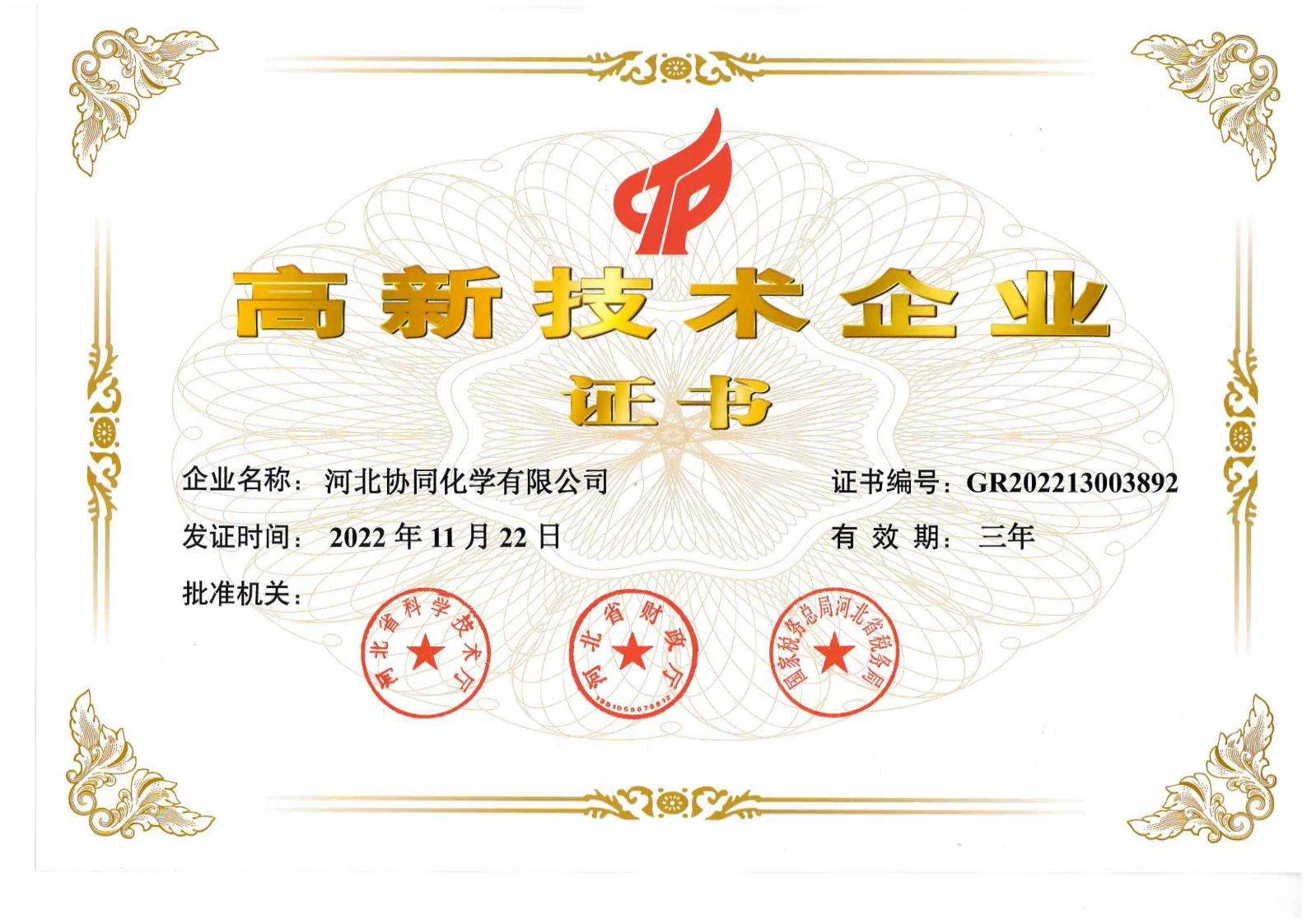
News
nov. . 23, 2024 05:05 Back to list
disodium edta chelating agent
Disodium EDTA A Versatile Chelating Agent
Disodium EDTA, or Disodium Ethylenediaminetetraacetic Acid, is a powerful chelating agent widely used in various industries, including pharmaceuticals, food, and cosmetics. Its unique chemical properties allow it to bind to metal ions, making it an invaluable tool in numerous applications. This article explores the chemistry, applications, benefits, and safety considerations of disodium EDTA, highlighting its significance as a chelating agent.
The Chemistry Behind Disodium EDTA
EDTA is a synthetic compound that features a complex structure capable of forming stable complexes with metal ions. It specifically has four carboxylic acid groups and two amine groups, which allow it to effectively bind with a variety of metals, including calcium, magnesium, lead, and cadmium. When disodium EDTA is neutralized with sodium, it creates a water-soluble salt that enhances its usability in aqueous environments.
The mechanism of action of disodium EDTA involves the formation of coordinate bonds between the metal ions and the EDTA molecule, which wraps around the metal ion much like a claw, effectively 'chelocking' it. This process not only helps in the removal of undesirable metal ions but also prevents them from participating in unwanted reactions that could compromise product stability and safety.
Applications of Disodium EDTA
Disodium EDTA is used across various sectors due to its chelating abilities
1. Pharmaceuticals Disodium EDTA is commonly included in medicinal formulations to stabilize metal-containing drugs. It acts as a preservative and helps prevent the degradation of active ingredients. Furthermore, it plays a vital role in detoxifying heavy metal poisoning by facilitating their excretion through urine.
2. Food Industry In the food sector, disodium EDTA serves as a food additive, primarily as a preservative and antioxidant. It helps maintain the color, flavor, and nutritional value of food products by binding to metal ions that can catalyze oxidation processes. Certain processed foods, such as canned vegetables and dressings, employ disodium EDTA to enhance shelf life.
disodium edta chelating agent

3. Cosmetics and Personal Care The cosmetic industry utilizes disodium EDTA in various formulations, including shampoos, lotions, and skincare products. It helps stabilize emulsions, preventing separation by binding heavy metals that could potentially destabilize the product. Additionally, it enhances the effectiveness of preservatives, ensuring that cosmetic products remain safe and effective.
4. Industrial Applications Disodium EDTA is used in industrial cleaning agents, water treatment processes, and laboratory applications. In water treatment, it helps remove metal ions from water supplies, making water safer for consumption. In industrial cleaning, it is incorporated into detergents to enhance their efficiency in removing metal-based stains.
Benefits of Using Disodium EDTA
The versatility and effectiveness of disodium EDTA as a chelating agent yield several benefits
- Stability Disodium EDTA contributes to product stability by preventing metal-induced degradation, a critical factor in pharmaceuticals and food. - Safety Unlike some chelating agents, disodium EDTA is generally recognized as safe when used in regulated amounts, making it an ideal choice for consumer products. - Functionality It enhances the efficacy of other ingredients in formulations by ensuring that unwanted metal ions do not interfere with their action.
Safety Considerations
Despite its numerous benefits, safety is paramount. Regulatory bodies, including the FDA and EFSA, have set guidelines for the allowable levels of disodium EDTA in food and cosmetic products. While it is considered safe for most applications, excessive exposure can lead to potential health concerns, including renal toxicity. Therefore, proper usage and adherence to regulations are essential for maintaining safety across products containing disodium EDTA.
Conclusion
Disodium EDTA is a remarkable chelating agent that demonstrates its versatility across various industries. From pharmaceuticals to food and cosmetics, its ability to bind metal ions confers stability and safety to a wide array of formulations. As research and technology advance, the applications of disodium EDTA may expand further, solidifying its role as a crucial component in the formulation of safe and effective products. Balancing its use with safety considerations ensures that this chelating agent continues to benefit consumers and industries alike.
-
Premium Amino Acid Chelate Fertilizer for Enhanced Crop Nutrition & Yield
NewsApr.29,2025
-
Premium OEM Micronutrient Fertilizer Prices Trusted Manufacturer & Supplier
NewsApr.29,2025
-
OEM Iminodisuccinic Acid Sodium Salt Eco-Friendly Chelator Supplier
NewsApr.29,2025
-
Premium Micronutrients for Rose Plants Factory Quotes & Trusted Manufacturer
NewsApr.28,2025
-
Amino Acid Chelated Calcium Fertilizer High Absorption & Crop Yield
NewsApr.28,2025
-
Polyaspartic Acid Structure Solutions Supplier & Manufacturer Quotes
NewsApr.28,2025
